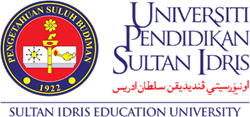Reflective practices as the cornerstone for teacher development in the 21st century: Lessons from educators’ action research projects
DOI:
https://doi.org/10.37134/jrpptte.vol11.2.7.2021Keywords:
Action research, cornerstone, educator, reflective practices, the 21st centuryAbstract
Research has shown that reflective practices improve teaching practices, which makes them valuable in the 21st century where the teaching context is complex due to increasing technological innovations and diversity among learners. However, it is hardly practiced among teachers. As a result, the present study aims at highlighting how reflective practices could improve teaching practices in a challenging context. The study adopted a Self-Study qualitative research approach. The data were collected through reflection, observation, and interviews from two collaborating researchers, primary school teachers, and students. Data were analyzed thematically. Findings show that reflective practices improve four main aspects of teaching practices namely assessment, teacher-student role in the classroom, teacher pedagogical competence, and teacher awareness on integrating ICT in the classroom and teacher proficiency in technology. It was revealed that RPs were effective in meeting TPD qualities. The study calls for teacher-educating institutions to ensure that teachers are provided with skills for developing reflective practices.
Downloads
References
Adom, D., Hussein, E., & Joe, A.-A. (2018). Theoretical and conceptual framework: Mandatory ingredients of a quality research. 7(1), 438–441.
Ann, O. W., Swanto, S., & AlSaqqaf, A. (2018). Pre-service ESL teachers engaging in reflective practice: Current observations and perceived challenges. Journal of Research, Policy & Practice of Teachers and Teacher Education, 8(2), 5–18.
Bayar, A. (2014). The Components of effective professional development activities in terms of teachers’ perspective. International Online Journal of Educational Sciences. doi: 10.15345/iojes.2014.02.006
Creswell, J. W., & Creswell, J. D. (2018). Research design: Qualitative, quantitative, and mixed methods approaches (Fifth edition). Los Angeles: SAGE.
Crowe, A. R. (Ed.). (2010). Advancing social studies education through self-study methodology: The power, promise, and use of self-study in social studies education. Dordrecht ; New York: Springer.
Dachi, H. (2016). Reflecting on five decades of teacher professional development in Tanzania: The missing dimensions. Papers in Education and Development, 36.
Darling-Hammond, L. (2017). Teacher education around the world: What can we learn from international practice? European Journal of Teacher Education, 40(3), 291–309.
Darling-Hammond, L., Hyler, M. E., & Gardner, M. (2017). Effective teacher professional development. Palo Alto, CA: Learning Policy Institute.
Farrell, T. S. C. (2013). Reflective Practice in ESL Teacher Development Groups. London: Palgrave Macmillan UK. doi: 10.1057/9781137317193
Hamilton, M. L. (Ed.). (1998). Reconceptualizing teaching practice: Self-study in teacher education. London ; Bristol, PA: Falmer Press.
Haßler, B., Hennessy, S., Cross, A., Chileshe, E., & Machiko, B. (2015). School-based professional development in a developing context: Lessons learnt from a case study in Zambia. Professional Development in Education, 41(5), 806–825. doi: 10.1080/19415257.2014.938355
Hennessy, S., Haßler, B., & Hofmann, R. (2015). Challenges and opportunities for teacher professional development in interactive use of technology in African schools. Technology, Pedagogy and Education, 24(5), 1–28. doi: 10.1080/1475939X.2015.1092466
Lane, R., McMaster, H., Adnum, J., & Cavanagh, M. (2014). Quality reflective practice in teacher education: A journey towards shared understanding. Reflective Practice, 15(4), 481–494. doi: 10.1080/14623943.2014.900022
Lee, B. J. (2021). Comparing factual recall of tapped vs. Handwritten text. Acta Psychologica, 212, 103221. doi: 10.1016/j.actpsy.2020.103221
Leshem, S., & Trafford, V. (2007). Overlooking the conceptual framework. Innovations in Education and Teaching International, 44(1), 93–105.
Losioki, B. E. (2020). Professional development and empowerment among secondary school teachers in Mkuranga District, Tanzania. 11(24). doi: 10.7176/JEP/11-24-11
Loughran, J. J. (2005). Developing Reflective Practice:Learning about Teaching and Learning through Modelling (2nd ed.). London: Falmer Press.
Majid, H. A., Ean, C. B., & Leng, E. Y. (2016). Continuous teacher education process in school. Journal of Research, Policy & Practice of Teachers and Teacher Education, 6(2), 33–44.
Marcos, J. M., Sanchez, E., & Tillema, H. H. (2011). Promoting teacher reflection: What is said to be done. Journal of Education for Teaching, 37(1), 21–36. doi: 10.1080/02607476.2011.538269
Miles, M. B., & Huberman, A. M. (1994). Qualitative data analysis: An expanded sourcebook (2nd ed). Thousand Oaks: Sage Publications.
Min, W. Y., Mansor, R., & Samsudin, S. (2016). Student teachers’ level of reflection during teacher clinical experience: A case study in a Malaysian university. Journal of Research, Policy & Practice of Teachers and Teacher Education, 6(2), 23–32.
Motallebzadeh, K., Ahmadi, F., & Hosseinnia, M. (2018). The relationship between EFL teachers’ reflective practices and their teaching effectiveness: A structural equation modeling approach. Cogent Psychology, 5(1), 1424682. doi: 10.1080/23311908.2018.1424682
Mwakabenga, R. J., Kavenuke, P. S., & Kinyota, M. (2019). Promoting teacher professional learning in Tanzanian schools: Lessons from Chinese school-based professional learning communities.
Pinnegar, S. E., & Hamilton, M. L. (2009). Self-study of practice as a genre of qualitative research: Theory, methodology, and practice. Dordrecht ; New York: Springer.
Richards, J. C., & Farrell, T. S. C. (2005). Professional development for language teachers: Strategies for teacher learning. New York: Cambridge University Press. Retrieved from https://doi.org/10.1017/CBO9780511667237
Rodgers, C. (2002). Defining reflection: Another look at John Dewey and reflective thinking. Teachers College Record, 104(4), 842–866.
Schön, D. A. (1987). Educating the reflective practitioner: Toward a new design for teaching and learning in the professions (1st ed). San Francisco: Jossey-Bass.
Zwozdiak-Myers, P. (2012). The teacher’s reflective practice handbook: Becoming an extended professional through capturing evidence-informed practice. Abingdon, Oxon ; New York, NY: Routledge.




